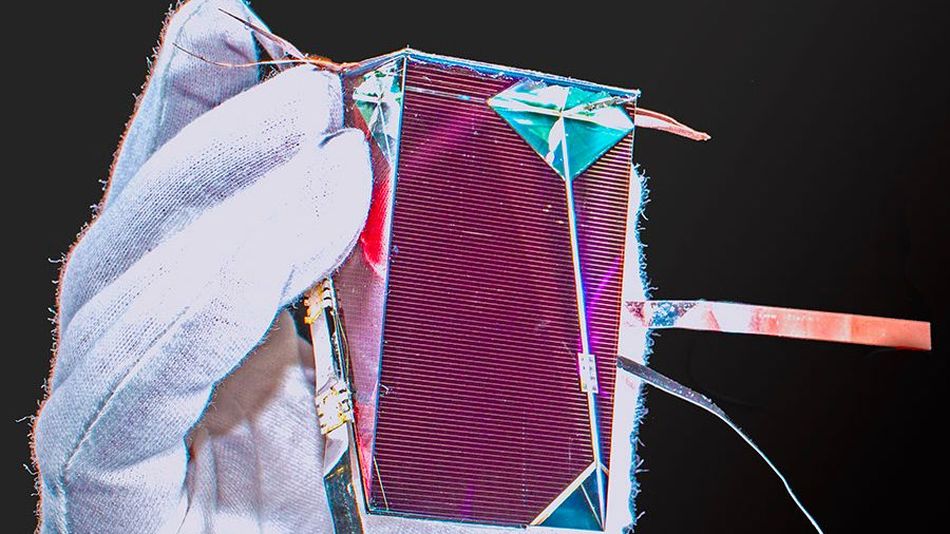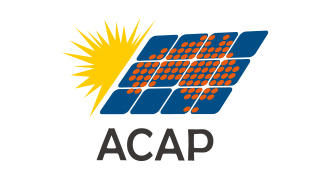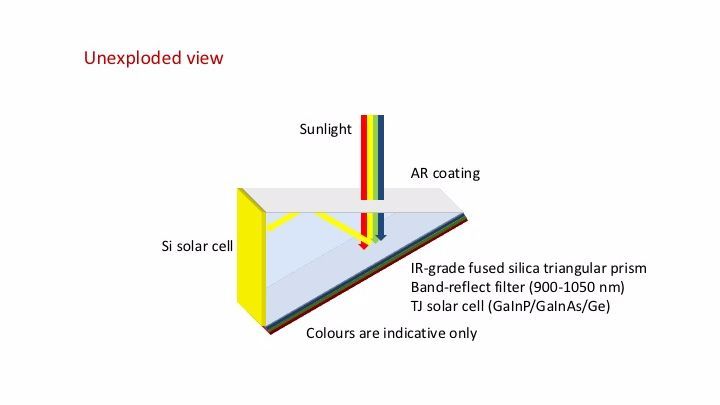Photocell with a prism broke the world record of efficiency for solar cells

Engineers from the Australian Center for Advanced Photovoltaics at the University of New South Wales have reported significant progress in increasing the efficiency of solar panels. The design created by them has a record efficiency of 34.5% - this is about twice the number of commercially available panels, and is already approaching the theoretical maximum.

The record for panels that do not use focusing lenses (that is, those commonly used in households) is achieved with a prism, to one of the faces of which a photocell is attached. The experiment used an element of 28 sq. Cm. The previous record of 24% efficiency was achieved on a much larger photocell (800 sq. Cm). The data was confirmed by independent experts from the US Renewable Energy Laboratory (USNREL).

The material of a transparent prism divides the incoming light into four wavelength ranges, each of which is effectively converted into electricity. The material has great transparency, and the shape of the prism allows you to keep the light caught in it, minimizing the leakage of energy.

Unfortunately, the use of such elements on the roofs of houses is still far away: the laboratory sample, which serves as proof of the efficiency of the concept, cost $ 3,000. For experimental technology, this is not much, but time must pass until engineers develop processes for the industrial production of elements at affordable cost.
One of the project’s engineers, Mark Kievers [Mark Keevers], says that a new technology will be able to find commercial use in ten years. The developers have promised to improve the performance of their design, increasing efficiency and reducing cost.
